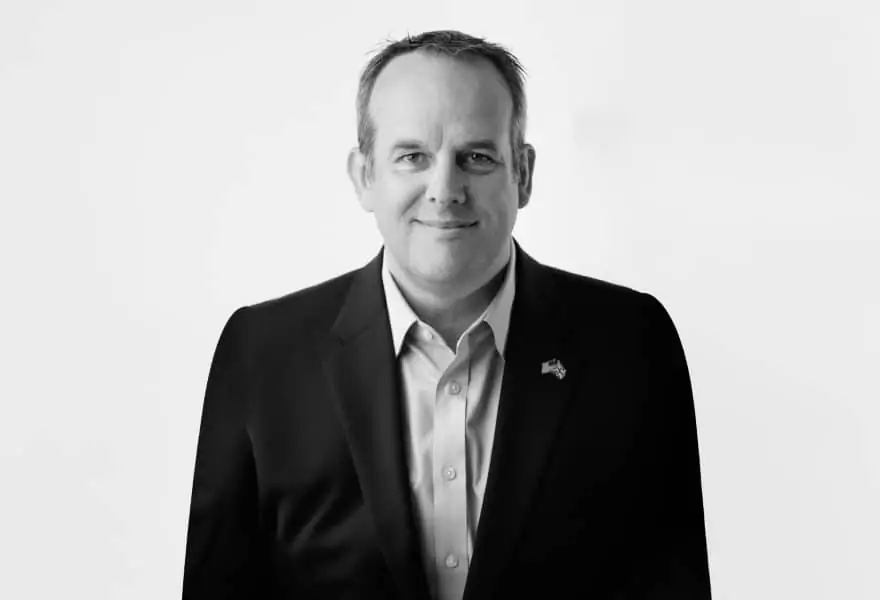
At Supply Chain Game Changer we believe in sharing experiences and expertise from people in every industry and from across the globe. As such we have introduced our “Seasoned Leadership in Action” Interview series at Supply Chain Game Changer. This interview is with Neil Hampshire.
When I joined ModusLink I needed to hire a new CIO. I didn’t want a CIO to just run the I/T backroom making sure that all of the systems and computers were up and running. I wanted a CIO that was going to be a Game Changer!
Based on my experience and my vision I knew that I/T should be a source of competitive advantage and competitive differentiation in terms of our services and capabilities. Together I/T, Supply Chain and the rest of the business could define and implement a strategy that would set us apart from the competition and create tremendous value for our customers.
When you consider all of the Digital Supply Chain technologies today they are all enabled by I/T: the Internet of Things, Artificial Intelligence, Virtual Reality, Autonomous Vehicles, Big Data and Intelligent Analytics, and on and on.
It took a while to find him but from my first conversation with Neil Hampshire I knew that he would be a world class CIO, colleague and business partner. Neil had the vision, expertise and experience to drive and shape the company strategy, not just be told what I/T had to support.
Neil completely understands the role of technology, I/T, the Supply Chain and business. He is not just a CIO. He is a business Executive that can rise to any challenge.
Thank you Neil for your friendship and taking the time to share your experiences and expertise with us.
Here is our interview with a truly Global Industry leader, Neil Hampshire!
Tell our readers a little about your background and experience?
I have been very fortunate to work for a number of large companies and brands and to live literally across the globe. I have always been in the systems area, but often working as part of the operation rather than in a pure IT role.
Whether implementing ERP systems across the globe, or developing “state of the art” warehouse operations, supply chain has always been a key focus and customer of my efforts and often IT and Supply Chain are the first functions that go global as a company scales. This leads to the need for tight alignment and coordination as data empowers efficient supply chains and enables coordination and optimization across many geographic and cultural boundaries.
What are some of your greatest achievements in the Supply Chain and in Business?
As a leader, developing people always has to be a priority. Having played a part in developing 3 IT leaders who have progressed to become CIO’s themselves, is a very important success.
From a Supply Chain success perspective, I am very proud of my role in helping set up the largest Pick, Pack & Ship operation in the world for Avon in Brazil. This highly automated operation can process 170,000 orders of 30-40 order lines per day. This stretched our Warehouse systems capabilities and required over 5 million transactions a day supporting the 1.3 Million Avon Representatives in Brazil.
How has the Supply Chain changed over the course of your career?
There are probably many more phases of evolution of the supply chain, however I would characterize 3 phases over my career so far.
- Integration of supply chains:-first integrating across the whole value chain, from sales, to planning and manufacturing. Then secondly integrating between enterprises, bringing tighter coordination between supplier’s and customer’s supply chains to deliver shared benefits.
- Globalization:- This is driven both through companies taking their products to new geographies and requiring the supply chain to “stretch” and enable this. Also effective global sourcing and international trade has allowed companies to leverage the global economy to procure and manufacture goods and services around the world and optimize costs and working capital.
- The Data Supply Chain:- The first two phases are highly dependent on data and integrating this across the supply chain, however increasingly data is a key differentiator in the latest phase. As Industry 4.0 and other big data opportunities take hold, those companies who learn how to fully take advantage of this will see huge benefits. Leveraging automation and manufacturing orchestration within the enterprise will enhance productivity and costs. Further big data opportunities and IoT in smart and connected devices, allows a further extension of supply chains right the way into consumer homes and provides a new level of insight and visibility to optimize and innovate.
What are some of the lessons you learned in your career that you would like to share for others to learn from?
Never under estimate the importance of culture in doing business and driving change. This reflects both global cultures, as business increasingly works across international boundaries, and corporate cultures. In today’s fast changing world, being able to deliver effective change requires engaging many people from different backgrounds and roles.
Thinking about how messaging, approach and timing may need to adapt to different cultures to sustainably deliver change should never be over looked. Having lived in 6 countries and worked in over 25, I have seen effective change programs and ineffective ones. Those which embrace and reflect cultural differences are always the most successful.
What challenges facing the world are important to you?
In recent politics, there are a number of challenges that business and supply chains need to react to. Trade tariffs, Brexit and increased nationalism are already causing ripples in supply chains and companies looking to respond to this trend.
On the positive side, all companies are challenged with the new wave of technologies and how best to leverage these. Artificial intelligence, Automation, big data and autonomous vehicles are just a few technologies that will significantly shape supply chains and business in general.
What is the role of Supply Chain and Change Leadership in addressing these challenges?
Leadership in general needs to maintain a clear message about what a company’s vision and key strategies are and look at how these challenges will help or hinder the delivery of these. “How can our physical network mitigate or take advantage of increased tariffs for our customers?” “How can we pilot and learn about these new technologies to improve customer service or reduce costs?” are questions leadership should be asking. Also making investment available to learn about the emerging technologies is a must. This however needs good governance and senior support.
What are you working on these days?
Key areas of focus at the moment are around providing better IoT capabilities to help our clients build this new technology into a fully connected supply chain. Also big data analytics and enhanced systems for continually optimizing our clients supply chains is another key project.
Finally we are investing in our IT infrastructure and developing APIs (Application Programing Interfaces) and process orchestration to enable “Supply Chain As A Service” options for existing and new clients.
What advice would you give people who have a career in, or who are considering joining, the Supply Chain?
The next phase of supply chain innovation is going to be faster and more disruptive then previous ones. Whatever your area of focus, you need to take time to learn about as many of the new technologies that are gathering momentum as you can. If you can bring an understanding of one or more of these technologies, when you progress in you supply chain career, you will see more opportunities and how these can transform and improve your company and supply chain.
How can people contact Neil Hampshire?
I can be reached at either [email protected] or through my LinkedIn Profile www.linkedin.com/in/neilhampshire

